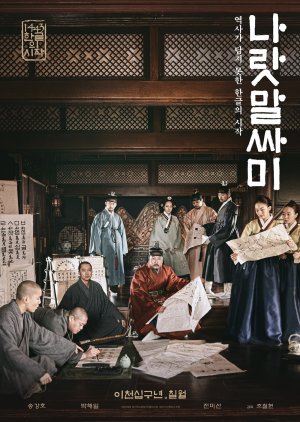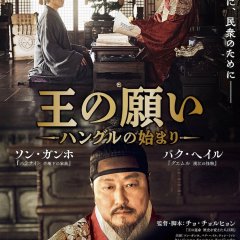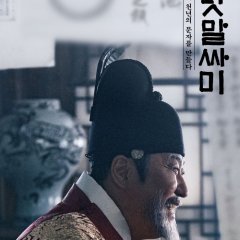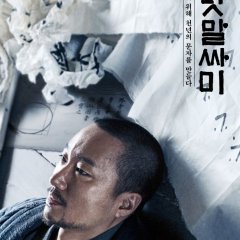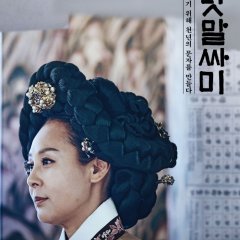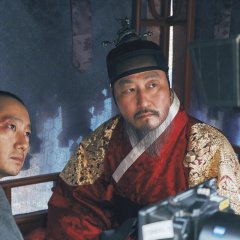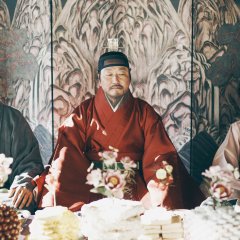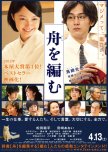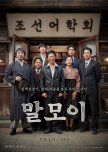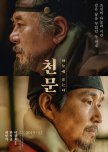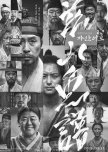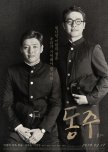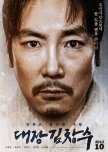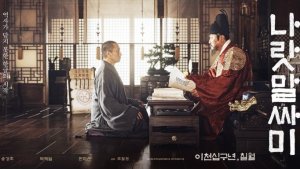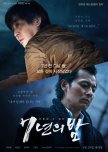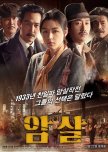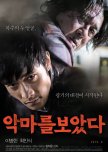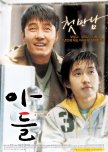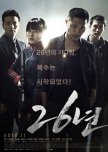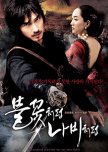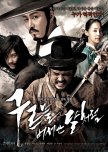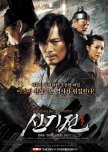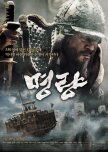 Winners of the 56th Grand Bell Awards
Winners of the 56th Grand Bell Awards - Português (Brasil)
- English
- magyar / magyar nyelv
- dansk
- Título original: 나랏말싸미
- Também conhecido como: naratmalssami , Our Country's Language
- Roteirista e Diretor: Jo Chul Hyun
- Gêneros: Histórico, Drama
Onde assistir The King's Letters
Grátis (sub)
Grátis
Elenco e Créditos
- Song Kang Ho Papel Principal
- Park Hae Il Papel Principal
- Jeon Mi SeonQueen So HunPapel Principal
- Kim Joon HanPrince Moon Jong [Crown prince]Papel Secundário
- Cha Rae HyungPrince Soo YangPapel Secundário
- Yoon Jung IlPrince An PyungPapel Secundário
Resenhas

Esta resenha pode conter spoilers
The world is not ruined by the truth
The King's Letters gave a fascinating glimpse into the creation of Hangul, the Korean alphabet. It was set in 1442 with King Sejong the Great determined to do something for his legacy as the sands were quickly running through the hourglass of his life and reign.The Joseon court was largely ruled by ministers and scholars schooled in Confucianism and Chinese writing. They were not at all interested in developing easily learned phonetic letters for their language. Sejong wanted all of his people to learn to read and write which would have meant more competition and a threat to their power and positions.
King Sejong was not to be deterred. An envoy of Japanese monks arrived demanding the Tripitaka, the oldest collection of Buddhist scriptures written in Hanja on over 80,000 wooden blocks. A series of dots connected him, with some help from the Queen, to the Joseon Buddhist monk in charge of the Tripitaka. Sejong discovered the monks could chant, read and write in Sanskrit which was based on phonetic letters. His Eureka moment occurred after years of failed attempts to create an easy and useable alphabet. Promising the monks he would build a temple in the capitol if they would help him with the alphabet, an uneasy alliance was formed.
Much of the film covered the monks and king working through their language and breaking it down into a total of 28 consonants and vowels. Instead of memorizing thousands of characters, what they were developing would make it much easier to be literate. Sejong wanted the letters to be elegant and concise like geometry using only lines, dots, and “facets”. The major conflict of the story was keeping what they were doing from the Confucian court. Due to conflicts with the Buddhists during the Goryeo Dynasty, there were hard feelings on both sides. Most of the tension, however, dealt with the ailing king fearing he wouldn’t live long enough to not only create the letters but also to spread their use so that they would be protected and take root.
Spoiler alert! Of course, they succeeded as we all know. Sejong did end up giving the Confucians credit to try and gain their support. It took time for the “vulgar” or “women’s” script to be accepted. Thankfully, women and fiction writers used it as well as Buddhist monks which kept it alive until it took hold. In 1849, it was adopted as Korea’s national writing system. Even the Japanese during their occupation who outlawed it, couldn’t kill it.
The King’s Letters did tend to slow down and become repetitive in the latter part. I am enough of a documentary geek that this felt like an enjoyable one only dressed up and with excellent acting. Song Kang Ho (King Sejong) had great chemistry with both Park Hae Il (Monk Shin Mi) and the late Jeon Mi Seon (Queen So Hun). The cinematography, sets, and costumes were all lovely.
King Sejong was playing the long game, he wanted an educated people who would only make the country stronger and more enduring. His vision didn’t come to bear overnight or even in his lifetime, but he planted a seed that did take hold, blossomed, and bore fruit. Is still bearing fruit. A legacy of knowledge which can break down class lines and open communication is not such a bad legacy after all.
10/10/22
Esta resenha foi útil para você?

I would not recommend this movie to the average viewer. If you do not have an interest in culture, language, and/or history, you will likely find this movie boring and dry. But if you do have an interest in at least one of those things, you will walk away feeling inspired, even if creative liberties have been made.
Esta resenha foi útil para você?

